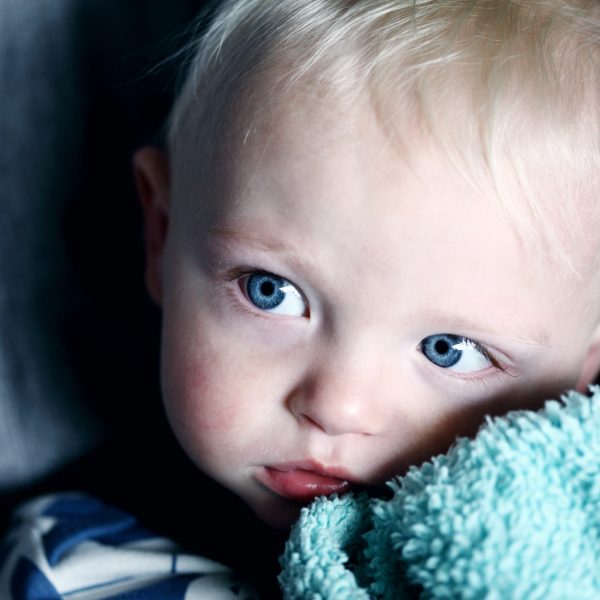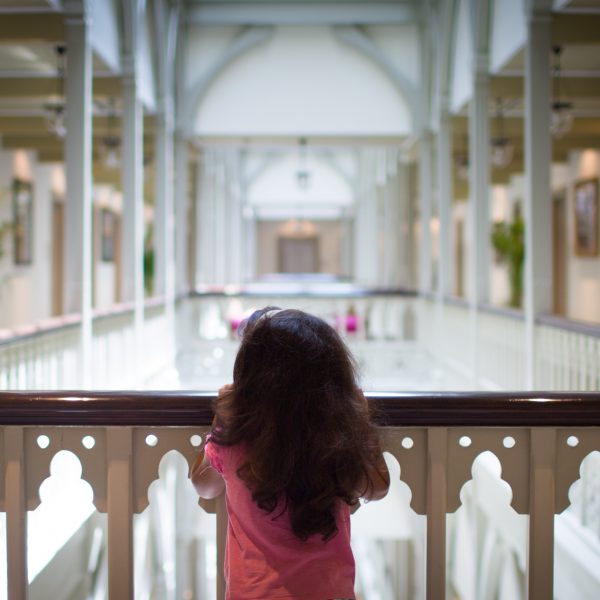Bravehearts CEO speaks out about preventing abuse ahead of Bravehearts Day

Many Australians have been left shocked and appalled after a former early childhood educator was charged with 1,623 child abuse offences against 91 children in Brisbane, Sydney and overseas between 2007 and 2022.
For those in the early childhood education and care (ECEC) sector, the news has been all the more shocking, leaving professionals grappling with a range of emotions and dealing with families who are also processing shock, and holding concerns about leaving their children in the care of others.
As the sector continues to process this news and move through the emotions which come with it, The Sector has made every effort to connect its readers with advice, support, perspectives and opinions from experts in this space.
Recently we spoke with Alison Geale, CEO of child protection organisation Bravehearts, to learn more about how Bravehearts can support ECEC services who wish to make a renewed commitment to safeguarding children, and to gather her perspective on the recent events.
Advice for services who wish to refresh their approach to child safeguarding
“All child facing organisations, including ECEC settings, should have child safeguarding as a priority,” Ms Geale began.
“Policies and procedures which impact children’s safety need to be understood, adhered to, and have rigor. The more detailed the training, the more aware educators can become to the signs of possible child sexual abuse in children and importantly signs of grooming in both children and adults.”
As well as educating adults about child sexual abuse, children should also receive age-appropriate personal safety education, she continued.
“Personal safety education decreases vulnerability and increases resilience in children and should be a key component in a child’s healthy development.”
Bravehearts offer Ditto’s Keep Safe Adventure Program, which teaches children about essential personal safety skills and knowledge using age-appropriate language, song, and dance, starring Bravehearts’ lovable lion cub ‘Ditto’.
Short and long-term effects of abuse
“Every week within the news cycle there is a story about child sexual abuse,” Ms Geale said.
“The shame, secrecy, and silence that surrounds the crime reinforces the notion that this is not something that could happen in my family, until it does. We, as a community need to break the silence on child sexual abuse and ensure that the stigma is not directed at or felt by the victim.
“The discussion about child sexual abuse needs to be normalised so that we can remove that stigma, have important discussions with children, educate adults and help to reduce the harm caused. The more we talk about it and educate everyone who is in a child’s life, the safer children will be.”
Part of recognising the impacts of child sexual abuse includes ECEC professionals being able to notice and respond to signs that a child may be being abused.
“Children and young people who have been sexually abused can suffer a range of psychological and behavioural problems from mild to severe, in both the short and long term,” Ms Geale said.
The effects of child sexual abuse can vary depending upon the circumstances of the abuse and the child’s developmental stage, and the experience of being abused can change the way children and young people understand their world, the people in it and where they belong.
“Their understanding of themselves and the world can become distorted, and create mistrust, fear and betrayal,” Ms Geale explained.
“Their personality and behaviours might change markedly from what they were prior to the sexual abuse. The manipulative nature of grooming that many sexual offenders use can cause ongoing thought distortions, self-identity issues, relational harm and isolation of the child.”
Potential short-term effects of child sexual abuse, she continued, include:
- Increased illness, body aches or other physical complaints
- Poor attendance or performance at school
- Difficulty concentrating or memory loss
- Mood changes
- Regressive behaviours
- Sleeping and eating disorders
- Lack of self-esteem
- Nightmares
- Self-harm or suicidal thoughts
- Self-hatred or reduced self-esteem
- Zoning out or not listening
- Disinhibited behaviour.
Potential long-term effects may include:
- Suicidal ideation
- Post-traumatic stress
- Sexual difficulties
- Inability to form lasting relationships
- Identity difficulties
- Relationship problems
- Parenting difficulties
- Alcohol and substance misuse
- The development of violent behaviour
- The development of criminal behaviour.
The belief of caring adults, such as parents, educators and carers, along with their support and actions to stop the harm after a child has made a disclosure, have an impact on the child’s resilience and recovery from the sexual abuse.
“If a child is not believed and supported appropriately after a disclosure it can lead to a higher level of relational trauma for the child leading to significantly more negative health and mental health outcomes for the child in the long-term,” Ms Geale explained.
Education at the forefront of prevention
One of the core ways to protect children from falling victim to sexual abuse is through education about personal safety.
Teaching children simple strategies about keeping safe can help them build confidence, resilience and empower them to be safe in a variety of situations.
“Parents and caregivers can help protect children by speaking with them about personal safety often, letting them know you’ll always be there for them and never making them feel ashamed or embarrassed about sexuality or body parts,” Ms Geale said.
“We provide counselling and support to those affected by child sexual abuse alongside child protection training, research and advocacy to help protect Australian children against this insidious crime.”
Bravehearts’ personal safety education programs have been professionally developed according to the learning needs of each specific age group. The programs are highly trusted by teachers and parents nationwide and are mapped to the Australian Curriculum.
Bravehearts also has resources and training available for people who are working with children and child-facing organisations.
“It is important that those people who are around the child are educated on this topic and are trained to respond correctly. The responsibility for protecting children must not remain solely with children,” Ms Geale said.
Bravehearts Day is being held on 30 August, and is one of the major annual fundraising and awareness events for the organisation. Donations help fund crucial counselling and support services for survivors, as well as support our personal safety education programs in ECEC and schools across the country.
Learn more about how to support Bravehearts Day here.
Resources are widely available for parents, carers, and educators to ensure they are having important safety conversations with children from as early an age as possible. These ongoing conversations and education pieces help to give the child the ability to speak up to a trusted adult without fear of consequence.
All adults should understand how to respond appropriately when a child discloses sexual abuse and what to do next. For more information and access to resources, visit www.bravehearts.org.au
Popular

Policy
Practice
Quality
Provider
Research
Safety starts with supervision: responding to real risks in ECEC
2025-07-07 10:30:58
by Fiona Alston

Policy
Provider
Practice
Quality
Jay Weatherill appointed to co-lead urgent review into childcare safety in Victoria
2025-07-07 07:24:04
by Fiona Alston

Quality
Practice
Provider
Workforce
Reclaiming Joy: Why connection, curiosity and care still matter in early childhood education
2025-07-09 10:00:07
by Fiona Alston













